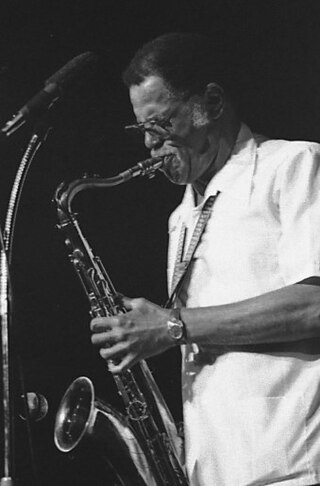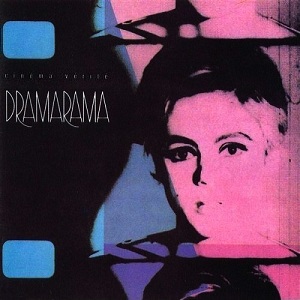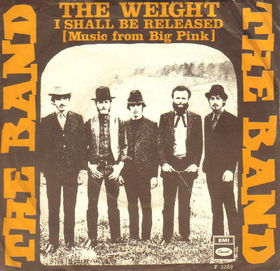
Paul Vaughn Butterfield was an American blues harmonica player, singer and bandleader. After early training as a classical flautist, he developed an interest in blues harmonica. He explored the blues scene in his native Chicago, where he met Muddy Waters and other blues greats, who provided encouragement and opportunities for him to join in jam sessions. He soon began performing with fellow blues enthusiasts Nick Gravenites and Elvin Bishop.

Dexter Gordon was an American jazz tenor saxophonist, composer, and bandleader. He was among the most influential early bebop musicians. Gordon's height was 6 feet 6 inches (198 cm), so he was also known as "Long Tall Dexter" and "Sophisticated Giant". His studio and performance career spanned more than 40 years.

Ryland Peter Cooder is an American musician, songwriter, film score composer, record producer, and writer. He is a multi-instrumentalist but is best known for his slide guitar work, his interest in traditional music, and his collaborations with traditional musicians from many countries.

Alan Price is an English musician who first found prominence as the original keyboardist of the English rock band the Animals. He left the band in 1965 to form the Alan Price Set; his hit singles with and without the group include "Simon Smith and the Amazing Dancing Bear", "The House That Jack Built", "Rosetta" and "Jarrow Song". Price is also known for work in film and television, taking occasional acting roles and composing the soundtrack of Lindsay Anderson's film O Lucky Man! (1973). He was inducted into the Rock and Roll Hall of Fame in 1994 as a member of the Animals.

Norman Jeffrey Healey was a Canadian blues, rock and jazz guitarist, singer and songwriter who attained popularity in the 1980s and 1990s. He reached No. 5 on the U.S. Billboard Hot 100 chart with "Angel Eyes" and reached the Top 10 in Canada with the songs "I Think I Love You Too Much" and "How Long Can a Man Be Strong".

James Beck Gordon was an American musician, songwriter, and convicted murderer. Gordon was a session drummer in the late 1960s and 1970s and was the drummer in the blues rock supergroup Derek and the Dominos.

Cinéma Vérité is the first album by the alternative rock group Dramarama, released in 1985. Although Dramarama was an American group, from New Jersey, the album was originally released by New Rose Records of France, and in America on Question Mark Records. It was later picked up for release by Chameleon Records, a small independent record label based in California.

The Solid Gold Sound of the UCLA Bruin Marching Band represents the university at major athletic and extracurricular events. During the fall marching season, this 250-member band performs at the Rose Bowl for UCLA Bruin home football games. Pregame shows by the band aim to build crowd energy and enthusiasm with traditional UCLA songs like "Strike Up the Band for UCLA", "Bruin Warriors", and "The Mighty Bruins". Throughout the game, the band performs custom-arranged rock and pop songs, as well as the traditional fight songs and cheers of the university. The UCLA Varsity Band appears at basketball games and other athletic contests in Pauley Pavilion. In 2018, the Bruin Marching Band was featured on the Muse album "Simulation Theory" performing the Super Deluxe version of the song "Pressure."

"The Weight" is a song by the Canadian-American group the Band that was released as a single in 1968 and on the group's debut album Music from Big Pink. It was their first release under this name, after their previous releases as Canadian Squires and Levon and the Hawks. Written by Band member Robbie Robertson, the song is about a visitor's experiences in a town mentioned in the lyric's first line as Nazareth. "The Weight" has significantly influenced American popular music, having been listed as No. 41 on Rolling Stone's 500 Greatest Songs of All Time published in 2004. Pitchfork Media named it the 13th best song of the 1960s, and the Rock and Roll Hall of Fame named it one of the 500 Songs that Shaped Rock and Roll. PBS, which broadcast performances of the song on Ramble at the Ryman (2011), Austin City Limits (2012), and Quick Hits (2012), describes it as "a masterpiece of Biblical allusions, enigmatic lines and iconic characters" and notes its enduring popularity as "an essential part of the American songbook."

Aynsley Thomas Dunbar is an English drummer. He has worked with John Mayall, Frank Zappa, Jeff Beck, Journey, Jefferson Starship, Nils Lofgren, Eric Burdon, Shuggie Otis, Ian Hunter, Lou Reed, David Bowie, Mick Ronson, Whitesnake, Pat Travers, Sammy Hagar, Michael Schenker, UFO, Michael Chapman, Jake E. Lee, Leslie West, Kathi McDonald, Keith Emerson, Mike Onesko, Herbie Mann and Flo & Eddie. Dunbar was inducted into the Rock and Roll Hall of Fame as a member of Journey in 2017.

"(Get Your Kicks on) Route 66" is a popular rhythm and blues song, composed in 1946 by American songwriter Bobby Troup. The lyrics relate a westward roadtrip on U.S. Route 66, a highway which traversed the western two-thirds of the U.S. from Chicago, Illinois, to Los Angeles, California. The song became a standard, with several renditions appearing on the record charts.

The Electric Flag was an American blues/rock/soul band from Chicago, led by guitarist Mike Bloomfield, keyboardist Barry Goldberg and drummer Buddy Miles, and featuring other musicians such as vocalist Nick Gravenites and bassist Harvey Brooks. Bloomfield formed the Electric Flag in 1967, following his stint with the Butterfield Blues Band. The band reached its peak with the 1968 release, A Long Time Comin', a fusion of rock, jazz, and R&B styles that charted well in the Billboard Pop Albums chart. Their initial recording was a soundtrack for The Trip, a movie about an LSD experience by Peter Fonda, written by Jack Nicholson and directed by Roger Corman.
Crossroads, crossroad, cross road(s) or similar may refer to:

Laurence Gordon "Corky" Laing is a Canadian rock drummer, best known as a longtime member of the pioneering American hard rock band Mountain. He and guitarist/vocalist Leslie West were the only members to appear on every album.

"Baby, Please Don't Go" is a traditional blues song that was popularized by Delta blues musician Big Joe Williams in 1935. Many cover versions followed, leading to its description as "one of the most played, arranged, and rearranged pieces in blues history" by French music historian Gérard Herzhaft.
"Chloe Dancer/Crown of Thorns" is a song by the Seattle rock band Mother Love Bone. The song is the fourth track on the band's debut EP, Shine (1989). "Chloe Dancer/Crown of Thorns" is actually two songs sequenced together. "Crown of Thorns" is found by itself on the band's sole studio album, Apple (1990). "Chloe Dancer" is not available as a stand-alone track.

"Golden Slumbers" is a song by the English rock band the Beatles from their 1969 album Abbey Road. Written by Paul McCartney and credited to Lennon–McCartney, it is the sixth song of the album's climactic B-side medley. The song is followed by "Carry That Weight" and begins the progression that leads to the end of the album. The two songs were recorded together as a single piece, and both contain strings and brass arranged and scored by producer George Martin.
Is Everybody Happy? (1929) is an American pre-Code musical film starring Ted Lewis, Alice Day, Lawrence Grant, Ann Pennington, and Julia Swayne Gordon, directed by Archie Mayo, and released by Warner Bros. The music for the film was written by Harry Akst and Grant Clarke, except for "St. Louis Blues" by W. C. Handy and "Tiger Rag". The film's title comes from Lewis's catchphrase "Is everybody happy?"

"East Bound and Down" is a song written by Jerry Reed and Deena Kaye Rose, and recorded by Reed for the soundtrack for the film Smokey and the Bandit. The song features Reed on the lead vocal, and vocalist Gordon Stoker of the Jordanaires on the harmony vocal. It was released in August 1977 as a single on RCA Records. The song's lyrics tell the basic plot line of the movie of making a 28-hour round-trip run from Atlanta, Georgia, to Texarkana, Texas, and back to illegally transport 400 cases of Coors beer for an after-race celebration.

Bill Carter is an American singer, songwriter, musician, and member of the Austin Music Hall of Fame. He is best known for co-writing "Crossfire" and "Willie The Wimp", recorded by Stevie Ray Vaughan; "Why Get Up?", recorded by The Fabulous Thunderbirds; and "Jacksboro Highway", recorded by John Mayall. Carter's songs have been covered by other blues, country, and rock artists including Waylon Jennings, Robert Palmer, Ruth Brown, Stray Cats, and Counting Crows.

















